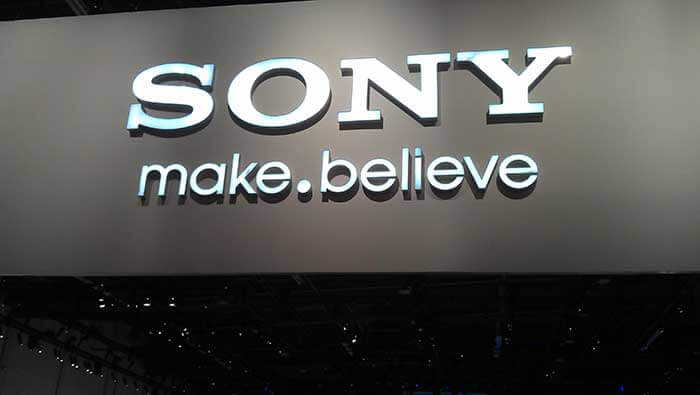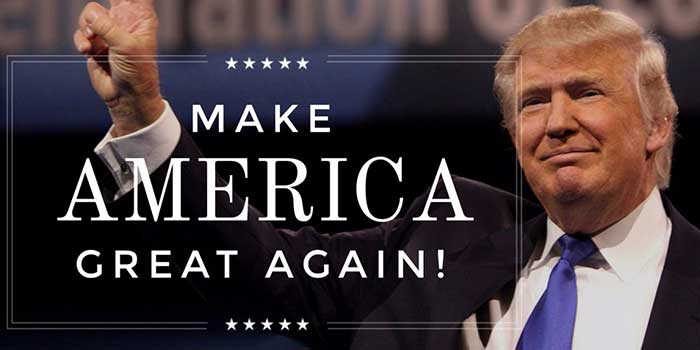Every huge brand grew from a small business or startup, just like yours. This piece explains what branding in business is and how it can change you.
Brands surround us wherever we go. Brands are everywhere. They’re rampant. However, if I asked you here and now “What is branding in business?” or simply “What is a brand?”, would you give me an answer right away?
Uh-uh. You’re drawing your eyebrows and wrinkling your forehead, trying to put the right words together. Worry not, my fellow entrepreneur, I have your answers to all branding questions (and not only branding, for that matter) here on VG blog.
Here’s the deal – let’s:
- Figure out what branding in business is – give it a nice and comprehensive definition
- Elaborate on “What is the importance of branding in business?” topic
- See what the key elements of branding are
- Summarize the whole thing in a few practical takeaways
Sounds good? Then it’s on!
The Definition of Brand (or Branding in Business)
Here is, probably, the neatest definition of branding ever, borrowed and adapted a bit by me from this Tronvig Group blog article. What these guys meant by the term “brand” is:
Brand is what runs through your head (pictures, images, words, colors, sounds etc) the moment you’re buying (or refusing to buy) a product or service.
In simple words, it’s WHY you buy or don’t buy something. Branding, therefore, is a process of conceiving, creating, establishing, promoting, and developing a brand.
Brands Are Not WHAT We Buy – It’s WHY We Buy

Of, course, some of you may think “I’m buying stuff ‘cos I really need it, not because of some brand.” Well, you might buy a loaf of bread or get a haircut because you’re genuinely hungry or your hair gets in your eyes. If so, then answer me:
- what kind of bread do you buy and where?
- what haircut do you have and why do you want to have your hair cut at this particular hairdresser’s?
What if there was a guy on the street selling no-name bread? Just bread, without any name or packaging. Supposedly, very tasty, although hard to prove. Would you buy it?
What if you found out that your neighbor next door was doing haircuts down at his apartment? For twice cheaper than at any hairdresser’s in town? Would you get one from him?
Well, guys, let me disappoint you – even if you answered “hm, I might” (which is highly improbable), in reality, you still wouldn’t do it. Our brains just don’t work that way now that we’re way past the point of mere survival as species. We’re too fat, lazy, and protected – metaphorically speaking, of course.
Products or Services Are Not Enough Just by Themselves
We want our stuff not just to be but to be worthy. Worthy of our internal expectations, social expectations, and the picture of our ideal selves. This is where brands and branding come in.
You think that it’s you who’s making choices, considering the options, and arriving at the right decisions when we shop for something. Poor you then.
In reality, our future has already been set long before you even enter the supermarket or log in to an online shop. The marketers have made the choice for you. How?
No, they do not predict future or mess with your head in a secret way. No matter how different you think people are, they’re, nevertheless, very well categorized and put nicely into various groups also known as target audiences.

Age, gender, race, location, social status, occupation, monthly income, education, height, weight, marital status, or even attitude towards life. Marketers have learned to classify us to achieve one simple thing – create a brand that will resonate with us and make us want to become a part of.
Owning a Branded Item Means Belonging
Here is the part where branding has a strong connection with basic human psychology. People are social creatures – they like to belong to something larger than they are (social group, town population, state population, nation, religion, or lack thereof).
Why? Because belonging ensures better survival – it’s been a basis for the early pre-human creatures’ survival strategy. Staying together to fight off the external threats. Thousands of years later, this tactic, seemingly unnecessary in the modern world, kinda messes with our perception of the world and is a subject to countless exploitations of those who want to make an extra dollar off of you.
So, to sum it up, brands are kind of a general idea that many people can potentially associate themselves with. Examples? Right you are.
I will give you the names of some well-known brands and you will try to listen to what runs through your head when you read them. What sort of images, emotions, and associations do you get?
- Mercedes-Benz
- Adidas
- Apple
- Sony
- Coca-Cola
- Donald Trump
Don’t laugh about the last one on the list; people can be just as brands as any drink, vehicle, or piece of electronics – as long as the goal is to get a certain idea across.
Of course, these brands are powerful and worldwide-known but not all brands are. Think about a popular local bar, a car mechanic that all your friends refer to as a nice fella who gets things fixed – you’ll get the idea of a brand.
These are all brands, and they operate similarly – it’s the scale that’s different. Which brings me to an important point: your business doesn’t have to be as big as Apple or Google to become a brand. Brands can small, just like businesses.
What Are the Key Elements of Branding?
There are a few key elements found in all popular brands – let’s list them.
- Logo
- Slogan
- Design
- Attitude and approach
Now, let’s take a closer look at all four.
Logo
Logo is a universal branding element that represents the brand and everything it stands for. Most of the time, it’s the first thing people notice about you and your business. Coincidentally, this is what they build their judgment upon as well – that’s why logos are so crucial to the right branding.
Logo is not always an image or drawing. Sometimes, logos are simply a typeface – like Sony or Victoria’s Secret – but that doesn’t mean they’re less recognizable.

In any case, it’s the brand that makes the logo, not the other way around. So, if you’re just starting your business, don’t get too preoccupied with the logo. Make sure it’s at least visually appealing and not offensive – better focus on your business plan and strategy.
Seriously, if you were shown the Apple logo back in the late 1970s, wouldn’t you just laugh it off as a bad joke? Nowadays, people are willing to spend thousands of dollars for the right to have that logo featured on their consumer electronics products.
Slogan
Slogan is a continuation of your logo; they often complement each other and form a single piece. Slogan is usually a short memorable phrase or set of words that communicates the idea of your brand to the masses.
Let’s get back to the brands we’ve mentioned earlier:
- Mercedes-Benz. The Best of Nothing
- Adidas. Impossible Is Nothing (fun fact: this was taken from Muhammad Ali’s quote)
- Apple. Think Different
- Sony. BE MOVED
- Coca-Cola. Taste the Feeling
- Donald Trump. You’re Fired! (Just joking 😉 – his slogan was “Make America Great Again”)

As you can see, these slogans manage to capture the essence of the respective brand and put in a few words, powerful enough to mean something.
Same thing could be with your brand – don’t get too worked up with grandiose ideas, just pick whatever feels right and sounds short and catchy. If your business is selling donuts, why not go with something like “Full round of pleasure”?
Design
Again, design is a logical continuation of the previous two. Once you have an idea you want to get across with your brand, a logo that communicates that idea, and a slogan that enhances it, it’s time to build brand awareness through incorporating the aforementioned elements and themes into the design.
Even if all you have is a website, use the design wisely to make a strong, consistent impression on your visitors. Adidas heavily relies on sportsmen and sports style in general in whatever they do. Apple are trying to be “less is more” minimalistic. Everyone has their own thing – find yours.
Attitude and approach
Attitude is WHAT YOU FEEL when you’re doing something. Approach is HOW you’re doing it.
To be consistent with your brand, you need to have these two things match the overall picture. In other words, speak the language of your customer – show people that you are what you say you are.
Ferrari car salon owners don’t drive Ford F-150 trucks and wear dirty cowboy boots.
Conclusion
Branding is difficult but it might be the best shot for your small business. Independent of your personal agenda, branding allows you to communicate a clear message to a lot of people and resonate with their picture of the world.
The right thing to do would be share this article with your friends on the social networks – just click on one of the icons of social media, it’s that easy.
If you have further questions on the subject, please write them in comments – I’ll be glad to answer.
I hope you’ve got your answer to the “What is branding in business?” question. If not quite, feel free to check more good articles on the subject:





Comments0